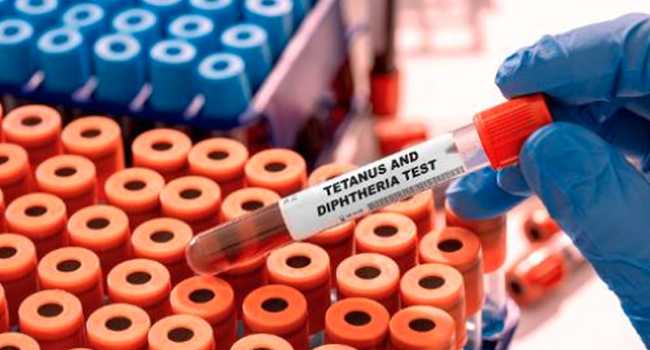The Federal Government on Monday, confirmed the spread of 7,202 cases of diphtheria across 105 Local Government Areas in 18 states, including the Federal Capital Territory.
The confirmed cases were recorded in Kano with 6,185 cases, Yobe (640), Katsina (213), Borno (95), Kaduna (16), Jigawa (14), Bauchi (eight), Lagos (eight), FCT (five), Gombe (five), Osun (three), Sokoto (three), Niger (two), Cross River (one), Enugu (one), Imo (one), Nasarawa (one) and Zamfara (one).

The Federal Government stated that 5,299 of the confirmed cases, which is 73.6 per cent, occurred among children aged one to 14 years with those aged five to 14 years bearing most of the brunt of the disease.

Diphtheria is a serious infection caused by strains of bacteria called Corynebacterium diphtheriae that make a toxin. It is the toxin that can cause people to get very sick.
Below are the important things to know about the causative factors of the disease and how it affects human.
Causes
Diphtheria is a serious infection caused by strains of bacteria called Corynebacterium diphtheria that make a toxin. It is the toxin that can cause people to get very sick. Diphtheria can infect the respiratory system, which includes parts of the body involved in breathing. When the bacteria get into and attach to the lining of the respiratory system, it can cause weakness, sore throat, mild fever, swollen glands in the neck.
It can also infect the skin, causing open sores or ulcers. However, diphtheria skin infections rarely result in severe disease.
How it spreads to others
1. Diphtheria bacteria spread from person to person, usually through respiratory droplets, like from coughing or sneezing.
2. People can also get sick from touching infected open sores or ulcers.
3.Those at increased risk of getting sick include; people in the same household.
4. People with a history of frequent, close contact with the patient.
5. People directly exposed to secretions from the suspected infection site (e.g., mouth, skin) of the patient.





